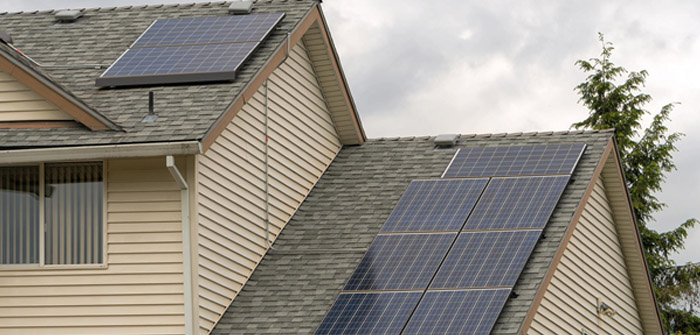Oregon is a fantastic place for solar power. Not only is solar energy good for the environment, but there are also some substantial rebates for solar electric and solar hot water systems in the state of Oregon. Once the state and federal solar rebates have been combined, solar panel installation can cost 50% less than it would have done without it.
The Energy Trust of Oregon has reported that there have been over 14,500 renewable energy systems installed in Oregon. The rise in homes now installing solar panels is due mainly to the costs have gone down. A decade ago, the price of an average home solar system was about $50,000. Now, a 5-kilowatt solar system will set you back between $8,000 and $16,000, depending on the type of equipment and efficiency you opt for.
Oregon is doing its part for the environment and aims to obtain half of all power from renewable sources, such as solar, by 2040. So, if you feel ready to reach out to solar companies and get your home solar system installed, here are some top tips to get you started.
Is your house suitable for rooftop solar panels?
Not all roofs are suitable for solar panels, so it is worth getting the professionals out to assess. Many aspects need to be considered, such as whether the panels can be installed south-facing, whether the roof is robust enough to support the solar panels and any obstructions like trees.
Another vital consideration is whether the house electrical system has the capacity for the added electricity. There are now some fanatic electric companies that can coordinate the installation of solar panels and check all the electrical components.
As you can now appreciate, adding solar panels to your home is a little more complicated than just buying the kit and putting it on your roof. Apart from the technical expertise needed to install a home solar panel system, various permits need to be applied for through the city or district. An inspection will also need to take place once it is installed.
What are the Oregon tax breaks for home solar systems?
Portland General Electric and Pacific Power customers in Oregon are eligible for incentives through Energy Trust of Oregon. Energy Trust of Oregon is a non-profit organisation funded by the 1.6 million ratepayers of the five largest Oregon utilities, including NW Natural, Cascade Natural Gas and Avista.
When a homeowner in Oregon has one of the 2,300 approved contractors install a solar system, Energy Trust of Oregon will inspect the system once completed and then pay the contractor the incentive for the installation cost. The Energy Trust of Oregon is a separate incentive from the federal tax solar panel scheme.
The federal government did have a 30% tax incentive for solar panel systems in place by 31 December 2019. However, it then dropped to 26% for new systems and dropped again to 22% in 2021. So for someone who buys a solar system that costs $12,000 now, the homeowner’s federal taxes will drop by $3,120.
Home solar is also tax-exempt, so although solar systems add value to Oregon homes, a 2015 Oregon law exempts any added value from property tax for homeowners. So when solar panels are added to a home, the value of that cannot be taxed.
Selling Your Solar Generated Electricity
The utility districts in Oregon were required to allow net metering since 1999 and is one of 38 states with this requirement. Net metering is a swap of electricity between what is generated at home (for instance, solar power, wind power, hydroelectric power) and the utility company’s grid. It creates a credit on your bill from your own energy production. Any electricity over the amount you use can be a credit on your bill.
The majority of home solar systems are designed to generate electricity equivalent to the quantity an average home will use during a calendar year. In the middle of summer, on a bright, sunny day, the home solar panels can produce much more electricity than the house uses, and that electricity is sent back into the grid. This surplus electricity is then used to power other people’s houses or buildings, and the homeowner of the solar system will receive a credit for the electricity.
Although customers with home solar panel systems are trading electricity with the power company, they still have to pay a monthly bill of around $10 to the utility company for the trade. This means that a household that consumes an average of 600 kilowatt-hours per month would see their energy bill fall from around $100 a month to about $10.
Closing Thoughts
Some states allow homeowners to be paid for surplus electricity, but a customer will get credits from the utility company in Oregon instead. These credits tend to get carried over for 12 months, and if an excess remains after that, the credits are given to customers who are in the utility’s low-income assistance program.
It is possible to go completely off-grid with a home solar panel system, but you would also need to invest in a battery. This battery will store the excess electricity produced during the day to have power at night and during low production times. However, these batteries can be costly, so it is worth contemplating the benefits over cost.




